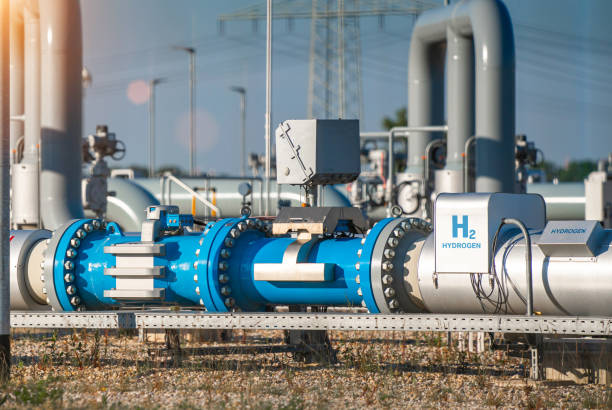Understanding Commercial Gas Supply for Businesses
Choosing the right commercial gas supplier is a critical decision for businesses of all sizes. Natural gas plays a vital role in powering operations, heating facilities, and running industrial processes. This article explores key factors to consider when selecting a gas provider and navigating commercial gas contracts to ensure reliable, cost-effective energy supply for your business.

How do I find the best commercial gas supplier for my business?
Finding the ideal commercial gas supplier requires careful research and consideration of several factors. Start by assessing your business’s specific gas usage patterns and requirements. This includes analyzing historical consumption data and projecting future needs based on growth plans or seasonal variations.
Next, compile a list of licensed gas suppliers operating in your area. Many regulatory bodies maintain directories of authorized providers. Request quotes from multiple suppliers, comparing not only prices but also contract terms, customer service quality, and additional services offered.
Consider the supplier’s reputation and financial stability. A provider with a strong track record of reliability and customer satisfaction is likely to offer more dependable service over the long term. Reading customer reviews and checking industry ratings can provide valuable insights into a supplier’s performance.
What are the essential factors for choosing a business gas provider?
When evaluating potential gas providers, several key factors should influence your decision:
-
Pricing structure: Understand how rates are calculated and whether they’re fixed or variable. Fixed rates offer price stability, while variable rates may provide savings during market downturns but carry more risk.
-
Contract flexibility: Look for terms that align with your business needs, such as contract length options and the ability to adjust consumption levels without penalties.
-
Customer service: Responsive support is crucial for addressing issues quickly. Inquire about the provider’s customer service hours and communication channels.
-
Billing accuracy and transparency: Clear, detailed invoices help with budgeting and identifying potential areas for energy savings.
-
Energy efficiency programs: Some suppliers offer tools and resources to help businesses optimize their gas usage and reduce costs.
-
Additional services: Value-added offerings like energy management systems or consultancy services can provide extra benefits.
How can I compare business gas suppliers and pricing?
Comparing gas suppliers effectively involves more than just looking at the per-unit price of gas. Consider the following steps:
-
Obtain quotes from multiple suppliers based on your usage profile.
-
Evaluate the full cost structure, including any standing charges, meter fees, or other additional costs.
-
Consider the contract length and how it affects pricing.
-
Look for any introductory offers or loyalty discounts, but be cautious of short-term deals that may lead to higher long-term costs.
-
Assess the supplier’s billing practices and payment terms.
| Supplier | Contract Type | Price per kWh | Standing Charge (p/day) | Additional Features |
|---|---|---|---|---|
| Supplier A | 12-month fixed | 3.5p | 25p | Online account management |
| Supplier B | 24-month fixed | 3.3p | 30p | Energy efficiency audit |
| Supplier C | Variable rate | 3.2p-3.8p | 20p | Flexible consumption limits |
Prices, rates, or cost estimates mentioned in this article are based on the latest available information but may change over time. Independent research is advised before making financial decisions.
What are the different types of commercial gas contracts?
Commercial gas contracts come in several forms, each suited to different business needs:
-
Fixed-rate contracts: Offer price stability for a set period, typically 1-3 years. Ideal for businesses seeking predictable energy costs.
-
Variable-rate contracts: Rates fluctuate with market prices. Can be beneficial when market prices are expected to decrease.
-
Flexible purchasing contracts: Allow businesses to buy gas in portions over time, potentially taking advantage of market dips.
-
Interruptible contracts: Offer lower rates in exchange for the supplier’s ability to interrupt service during peak demand periods. Suitable for businesses with alternative fuel sources.
-
Green gas contracts: Provide renewable gas options, supporting businesses’ sustainability goals.
Understanding these contract types helps in selecting the most appropriate option for your business’s energy strategy and risk tolerance.
Why is reliable service and support important for gas suppliers?
Reliable service and support from gas suppliers are crucial for several reasons:
-
Continuity of operations: Uninterrupted gas supply is essential for many businesses. A reliable supplier ensures consistent delivery, minimizing disruptions.
-
Emergency response: Quick resolution of gas-related issues is vital for safety and operational efficiency. Responsive support can prevent costly downtime.
-
Billing accuracy: Reliable suppliers maintain accurate billing systems, reducing the administrative burden of resolving errors.
-
Regulatory compliance: Knowledgeable support staff can help businesses navigate complex energy regulations and compliance requirements.
-
Energy management: Some suppliers offer tools and expertise to help businesses optimize their gas usage, leading to cost savings and improved efficiency.
When evaluating suppliers, inquire about their service level agreements, emergency response times, and the qualifications of their support staff to ensure you’ll receive dependable assistance when needed.
In conclusion, selecting the right commercial gas supplier involves careful consideration of pricing, contract terms, service reliability, and support quality. By thoroughly assessing these factors and comparing offerings from multiple providers, businesses can secure a gas supply arrangement that meets their operational needs while optimizing costs and efficiency.



